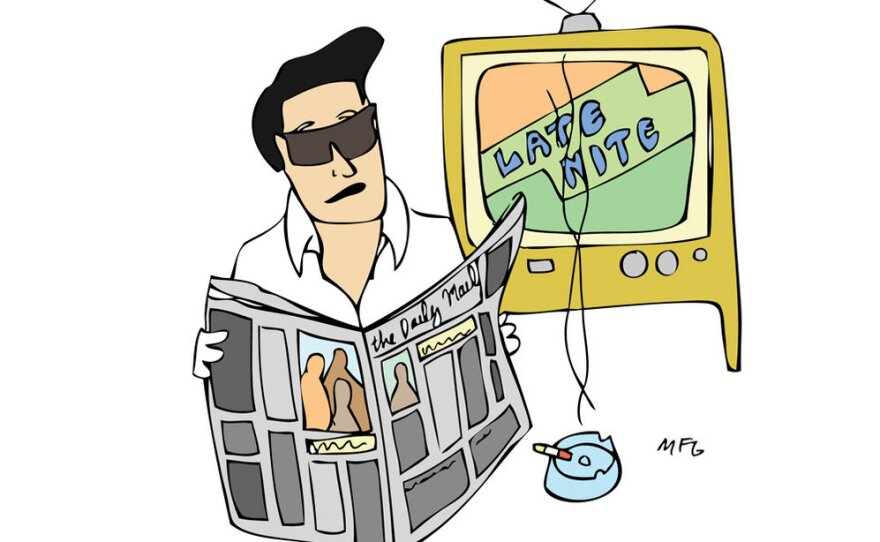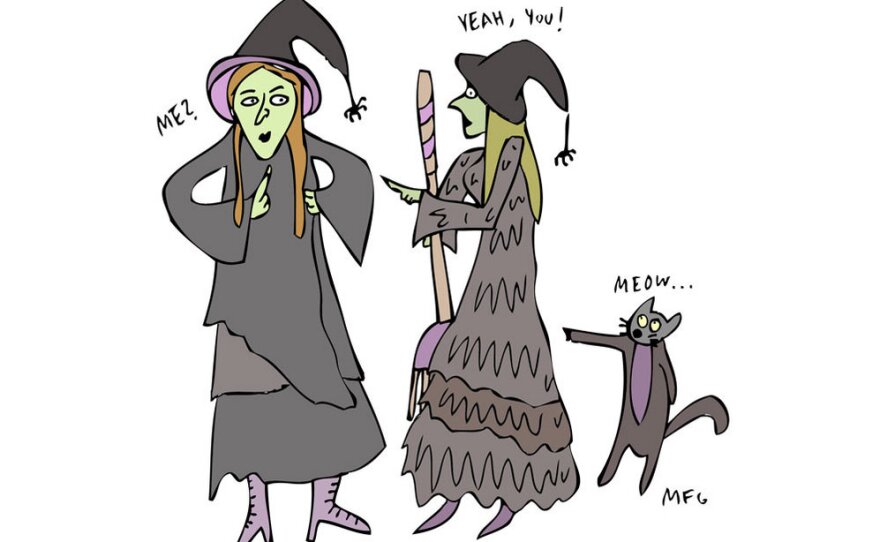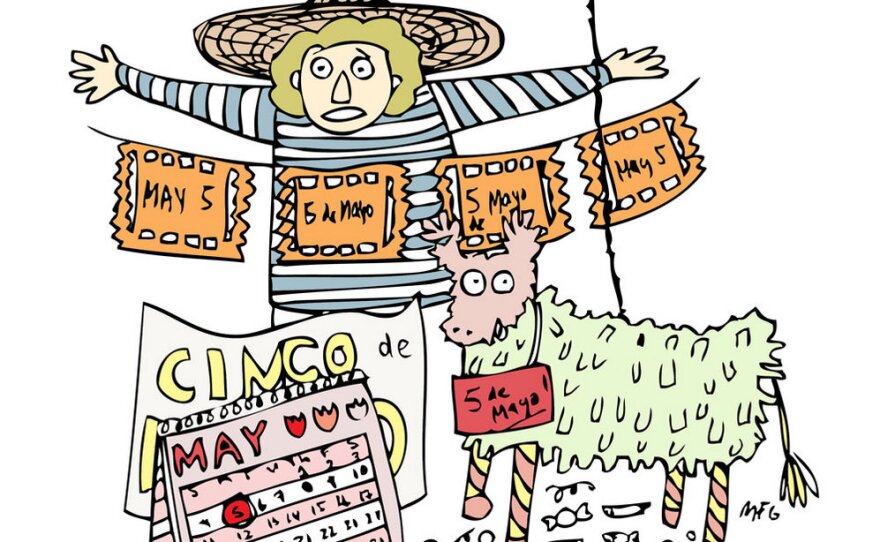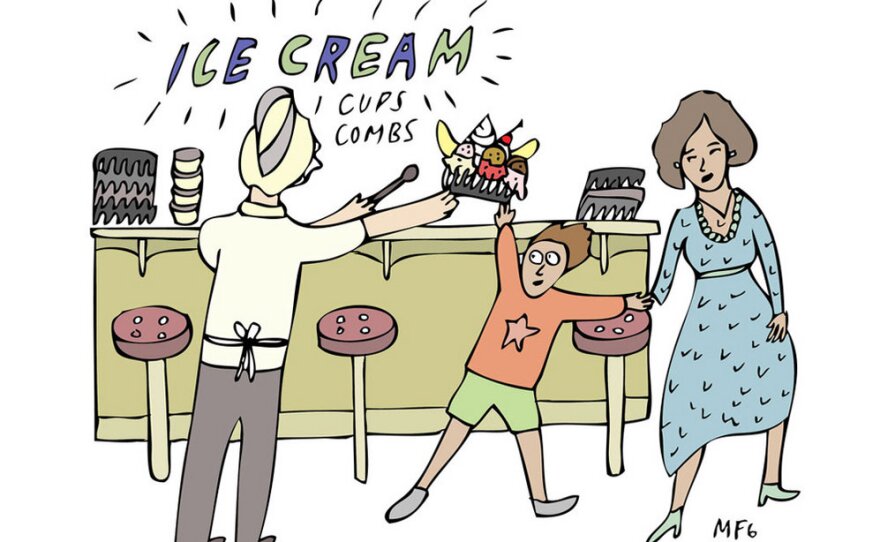Perhaps you know that pickles come from cucumbers. That the Washington Redskins are in Washington, D.C., and not Washington state. And that Roy Orbison was not blind.
But all around you are intelligent, upstanding citizens who do not know these — and other — things.
Trust us.
Part of being an adult is finding out stuff you should have known for years but somehow didn't.
These are things we should have learned — not gaffes born of exhaustion or bumbling speechwriters, like we see in politicians who misspell potato, misstate the number of states or confuse John Wayne and John Wayne Gacy.
It could be something serious, like knowing never to mix ammonia and bleach. Or something trivial, like understanding which side the fork goes on in a place setting. It could be the chronic misuse of a word, such as "comprise" — as in "A baseball team comprises nine players." (Yes. That's really how you're supposed to use it.) It could be misheard song lyrics or a misinterpreted logo.
But it's pretty much inevitable that at some point each of us as an adult will slap our forehead and think, "Why didn't I know that? I must have been absent that day."
Often, it's something that, if we had just stopped to think about it, to hold it up in the light for examination at an earlier time, would have made more sense.
The problem, of course, is we don't stop.
Sweet Potato Or Yam?
Veteran cook Sarah Commerford, for instance, never knew the difference between a turnip and a rutabaga. A co-owner of an educational advocacy company in Holliston, Mass., Commerford has loved kitchen matters all her life. In 2010, she created the blog What's Cooking in Your World? One day a week she tries out a new recipe — from a different country — on her family.
Commerford is proceeding alphabetically, from Afghanistan to Zimbabwe. During the course of her culinary quest, she has served Namibian alligator and Mongolian dumplings.
Back in March, she set out to make Soul Soup, a Montenegro concoction. The recipe called for a rutabaga.
"My blog is all about exploring cultures and food, especially unusual things, as a way of connecting with the larger world around me," Commerford says. "I've always been an adventurous eater, and had eaten turnips many times, but don't think I'd ever had a rutabaga."
While she was at the store picking out ingredients, "I realized that these two vegetables, although somewhat similar in appearance, were really quite unique," she confesses. "How had I missed this? Of course, I bought both and tried them, actually preferring the rutabaga, as it's sweeter, less bitter and turns a lovely shade of orange when cooked."
She adds, "Luckily, I have been spared root-vegetable humiliation and never served up one, claiming it was the other. The mere thought gives me chills."
Ask around and you will hear other such tales, like people who only learned late in life the difference between baking soda and baking powder. Or gumbo and etoufee.
"Up until last week," Kerry McCray, a food writer at the Sacramento Beeconfessed recently to readers, "I didn't know the difference between sweet potatoes and yams."
She went on to explain that the skin of a sweet potato — which has pointed ends — ranges in color from yellow to orange to red, while a yam has brown or black skin and more rounded ends.
We all have misconceptions and misperceptions. A few years ago on This American Life, reporter Alex Blumberg admitted on air that it wasn't until he was in his mid 30s that he found out that the Nielsen families — the TV-watching people who volunteer to be monitored for statistical and marketing reasons — were not actually all families named Nielsen.
He found people — including his father — who mispronounced the word misled, believing it was the past tense of a nonexistent verb misle — meaning to deceive, or mislead. And another guy who thought the word quesadilla was Spanish for "What's the deal?"
Weren't we supposed to have learned all this stuff back in college? Judy Jones and William Wilson asked in their popular compendium of factoids, An Incomplete Education. "Sure you were, but then, as now, you had your good days and your bad days. Ditto your teachers. Maybe you were in the infirmary with the flu the week your Philosophy 101 class was slogging through Zarathustra. Maybe your poli-sci prof was served with divorce papers right about the time the class hit the nonaligned nations. Maybe you failed to see the relevance of subatomic particles given your desperate need to get a date for homecoming. Maybe you actually had all the answers — for a few glorious hours before the No-Doz (or whatever it was) wore off. No matter. The upshot is you've got some serious educational gaps."
Not Rocket Science
Nowadays, of course, you can Google or Yahoo whatever you need to know. But it's quicker, and cooler, if you've got the knowledge in your own noggin. Still, Johnny-come-lately knowledge is popular fodder for Internet forums. Often they are slugged something like: "Stuff You Can't Believe You Just Figured Out."
On Something Awful several years ago, people admitted that it took them years to decipher certain corporate logos. One person always thought the figure between the Good and the Year — which is actually a winged foot — is the depiction of an old woman. Others never realized that the logo for Saturn automobiles depicts a planet and is not just an X.
One 18-year-old wrote: "Until about six months ago, I honestly believed that 'character witnesses' were witnesses who were brought in to lend character to a trial, like a clown or an eccentric scientist."
Another poster followed suit: "I'm 21, and that just clicked. I thought the exact same thing you did because on the Law and Order channel, the character witnesses are always crazy."
To bring the misconceptions — or perhaps mass-conceptions — up-to-date, we posted a query on the NPR Facebook page recently, asking our Friends to "tell us about something you were embarrassed to learn as an adult that you should have learned much earlier." More than 4,000 people responded.
"I am embarrassed by how much stuff I've learned reading these comments," wrote Azure Stephens. "LOL."
And Gin Peck added: "Thanks, all y'all for your confessions. I feel so much more human now."
Look It Up
Years ago, the legendary writer George Plimpton was featured in an "I Was Absent That Day" magazine essay that was the inspiration for this article. A major corporation asked Plimpton to lay out instructions about how to give a speech. "In my first remarks on the dais," Plimpton confessed, "I used to thank people for their 'fulsome introduction,' until I discovered, to my dismay, that 'fulsome' means offensive and insincere."
He said, "Consult a dictionary for proper meanings and pronunciations."
It's never too late to learn the difference between enormousness (large) and enormity (outrageous or heinous). Or the meaning of nonplussed.
When Gene Weingarten, a Pulitzer Prize-winning reporter at The Washington Post, discovered as an adult that he had been misusing a word, he was, well, nonplussed.
"Until incredibly late — maybe 25 years old — I used 'nonplussed' as incorrectly as possible," Weingarten says today. "I thought it meant 'unflustered,' basically, instead of what it means, which is, um, flustered."
He says, "If you look at my clips for the first few years, you'll probably find it wrong half a dozen times, because it was a word I liked to use. Wrongly."
In confessing knowledge gaps, Weingarten, Commerford, Plimpton and others remind us that we humans have limitations. And that to admit that we don't know the things that we should know takes a certain amount of humbleness.
Wait. Is humbleness even a word?
Copyright 2020 NPR. To see more, visit https://www.npr.org. 9(MDA3NTY5MTc2MDEzMDY5NDU2MjQ3NDZhOA001))



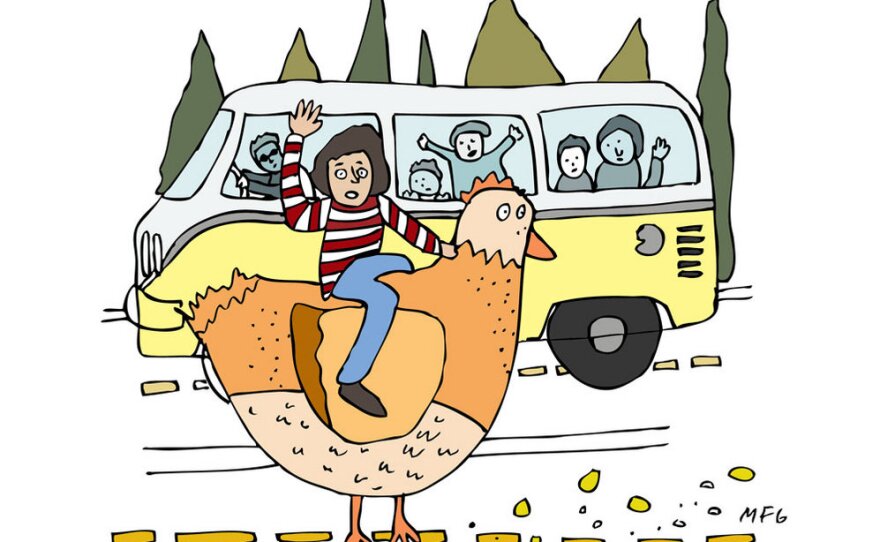
!["Thought [the] band Alice in Chains was Allison Change. (And I actually liked them.)"](https://npr.brightspotcdn.com/dims4/default/efed7be/2147483647/strip/true/crop/997x614+0+25/resize/880x542!/quality/90/?url=https%3A%2F%2Fmedia.npr.org%2Fassets%2Fimg%2F2011%2F07%2F04%2F3_slide-f015a29a39b4d3a70e55da31c8fcd0b19c689780.jpg)
